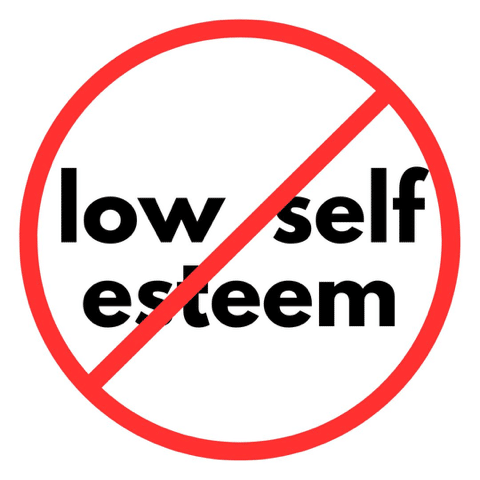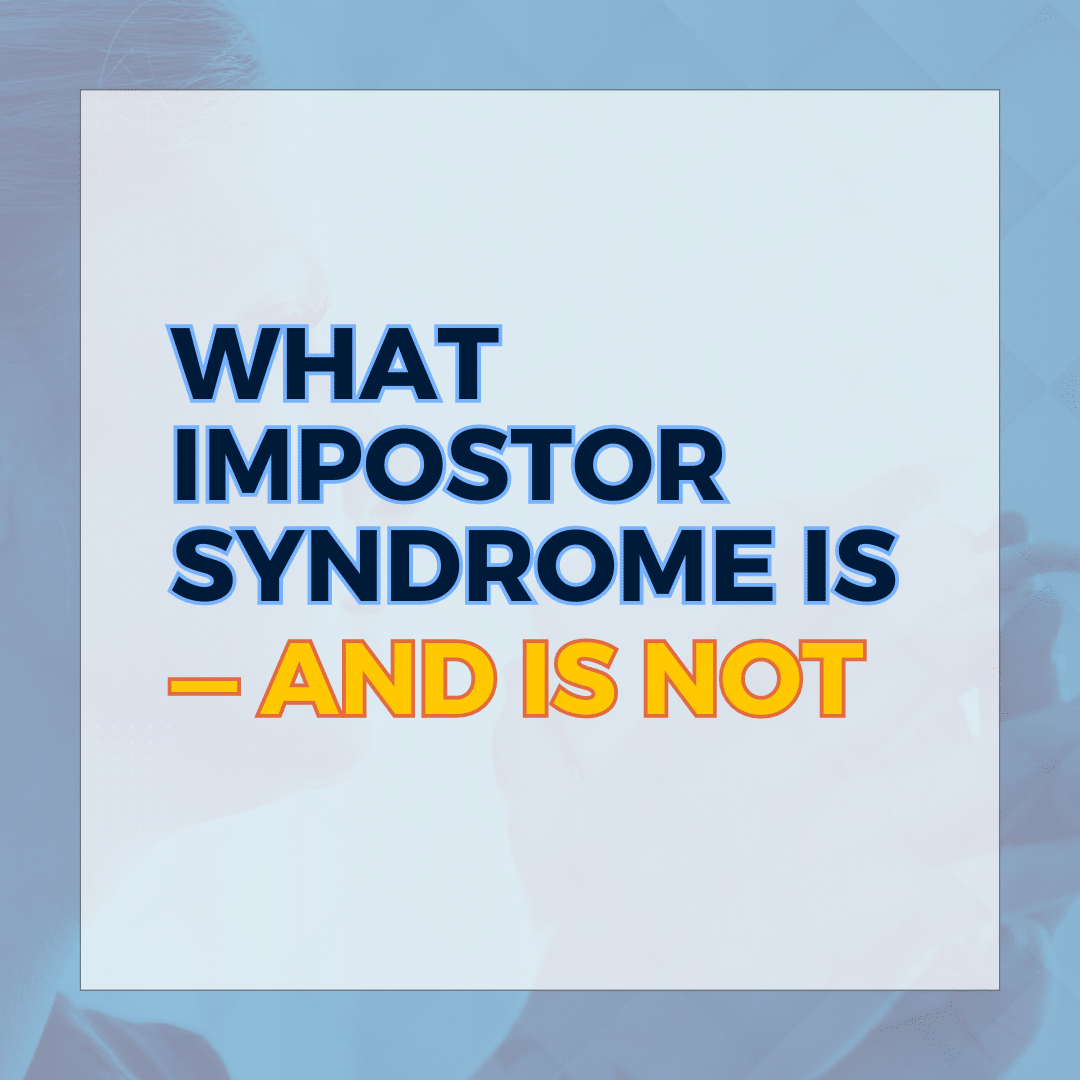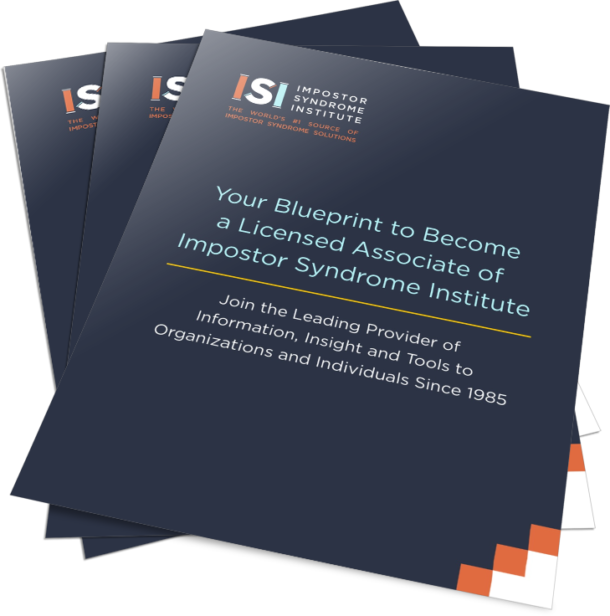Have you ever been unsure whether what’s holding you — or others — back is impostor syndrome, low self-esteem, lack of confidence, or something else entirely?
Since there is so much confusion about impostor syndrome, let’s start by answering the common question of, “what is impostor syndrome?” and then we’ll address what it is not. For starters…
Impostor syndrome isn’t a “fancy term” for low self-esteem.
Think of self-esteem as the global sense we have about ourselves.
But impostor syndrome is specific to achievement arenas: work, school, business, or career.
For example, you don’t feel like an impostor when you’re buying groceries or walking the dog.
But you might feel like an impostor when you start a new job, land your first speaking gig, or sign your first few clients.

You might feel like an impostor when you need to present your research or project results to the “higher-ups” or your work is otherwise being critiqued.
You might feel like an impostor if you’re the only woman in your department or the first-sight-impaired person to make VP.
To be clear, researchers have found people with the impostor phenomenon experience lower levels of self-esteem.
But that doesn’t mean self-esteem is an issue for everyone with impostor syndrome.
In my experience, it’s possible to have relatively healthy self-esteem and experience impostor syndrome.
What’s the difference between impostor syndrome and lack of confidence?
Every twinge of anxiety or self-doubt is not automatically impostor syndrome.
It’s perfectly normal to feel uncertain about our abilities and talents occasionally — after all, no one excels at everything.
A certain amount of fear and anxiety are part of everyone’s achievement journey (even ours!)
The fact that you feel jitters before a job interview, making a presentation, or starting a new job or business is to be expected.
Of his experience starring in the Broadway show Fences, Tony and Oscar-winning actor Denzel Washington told an interviewer, “That last five minutes before we go on that first preview, if you don’t have that ‘what the hell am I doing here?’ [feeling]… then they say it’s time to quit.”
The point is, a certain amount of fear and self-doubt is NORMAL and doesn’t necessarily mean that what you or others are experiencing is impostor syndrome.
Impostor syndrome has 3 components:

- The first is the (false) belief that you’ve somehow managed to fool people into thinking you’re more talented, intelligent, competent, or qualified than you “really” are.
- This belief exists despite concrete evidence of your past accomplishments or abilities which are attributed to things like luck, timing, connections, personality, the supposed simplicity of the task, or other largely external factors.
- This results in the third component, namely our fear of being found out.
The Bottom Line
Being impostor syndrome-informed means understanding the distinction between these similar experiences as well as the three key components.
At the same time, we don’t recommend “diagnosing” yourself or your employees, co-workers, or clients as having impostor syndrome.
Instead, it’s about having accurate information to self-diagnose whether what you’re experiencing is impostor syndrome or something else.
Recognizing the difference between impostor syndrome, low self-esteem, self-doubt and other factors that hold people back is just one way coaches and coach-minded leaders can make a difference in the lives and careers of others.
You can be impostor syndrome-informed through our blend of evidence-based research, a coaching framework, and a diverse toolkit of practical, immediately actionable tools that help your clients/employees/students (and you!) avoid the “misdiagnosis” impulse and close the confidence gap.
This training provides an in-depth understanding of impostor syndrome as well as relevant, actionable tools that have been used with a broad cross-section of people working in a wide range of occupations and levels.
This 100% virtual course offers 25 Continuing Coaching education (CCE) credits from the International Coaching Federation (ICF.)




